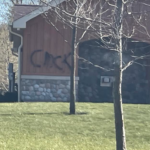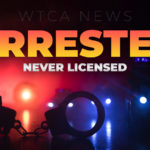 U.S. Reps. Jackie Walorski (R-Ind.) and Julia Brownley (D-Calif.) Wednesday reintroduced the bipartisan Stop for School Buses Act, which would require a comprehensive review of laws, practices, and technologies aimed at preventing illegal passing of stopped school buses. They first introduced the bill following the 2018 tragedy in Fulton County, Ind., that claimed the lives of three siblings and critically injured a fourth student.
U.S. Reps. Jackie Walorski (R-Ind.) and Julia Brownley (D-Calif.) Wednesday reintroduced the bipartisan Stop for School Buses Act, which would require a comprehensive review of laws, practices, and technologies aimed at preventing illegal passing of stopped school buses. They first introduced the bill following the 2018 tragedy in Fulton County, Ind., that claimed the lives of three siblings and critically injured a fourth student.
“Children are our future, and we need to make sure they get to and from school safely so they can learn, grow, and find the path to success,” Congresswoman Walorski said. “In far too many communities across the country – including Fulton County here in northern Indiana – we have seen the tragic consequences of illegally driving past a stopped school bus. The Stop for School Buses Act is a bipartisan step we can take to reduce illegal school bus passing and help save lives. This commonsense bill will build on efforts already underway to study innovative technologies, increase public awareness, and help states and local schools develop the best policies to keep students safe.”
“As a mother and a former school board member, the safety of our school children is an issue that is near and dear to my heart,” said Congresswoman Brownley. “When a parent sends a child to school in the morning, they expect their children to return home safely. At all levels of government and throughout our nation, we need to do more to educate drivers about the importance of stopping for school buses and do more to assess new technologies that can prevent illegal school bus passing.”
U.S. Sens. Todd Young (R-Ind.) and Gary Peters (D-Mich.) introduced companion legislation in the Senate.
“The school bus tragedy that occurred in Rochester in 2018 was unimaginable, and my heart broke for the parents of those young children. We cannot allow that to happen ever again,” said Senator Young. “The Stop for School Buses Act will help prevent the illegal passing of school buses and keep our children safe on their way to school.”
“We need to do everything we can to help keep kids safe on their way to and from school, and that’s why it’s time for a much-needed review of safety laws surrounding school buses,” said Senator Peters. “By passing the Stop for School Buses Act, we can identify best practices and make our communities safer for children and families.”
“The National School Transportation Association thanks Representatives Walorski and Brownley for introducing this important legislation. While school bus transportation remains the safest form of transportation over all other modes, the pervasive problem of other vehicles illegally passing stopped school buses continues to put children in harm’s way. The STOP for School Buses Act will provide a comprehensive set of solutions. NSTA looks forward to working with the Congress to get this bill included in the infrastructure package,” said John Benish, President, National School Transportation Association.
BACKGROUND
The bipartisan, bicameral Stop for School Buses Act would improve efforts to prevent illegal passing by directing the National Highway Transportation Safety Administration (NHTSA) to conduct a comprehensive review of existing laws and programs, study the effectiveness of innovative technologies, recommend best practices, and create a nationwide public safety campaign.
If enacted, the bill would require NHTSA to:
• Compile illegal passing laws in every state, including levels of enforcement and penalties;
• Review existing public safety measures and programs;
• Recommend best practices for preventing illegal passing;
• Evaluate the effectiveness of technologies that may help prevent illegal passing incidents;
• Review driver education materials in every state to determine whether more information about illegal passing should be provided to drivers;
• Research connections between illegal passing of school buses and other safety issues; and
• Implement a public safety messaging campaign to promote safe driving when children are present and highlight the dangers of illegal passing.













